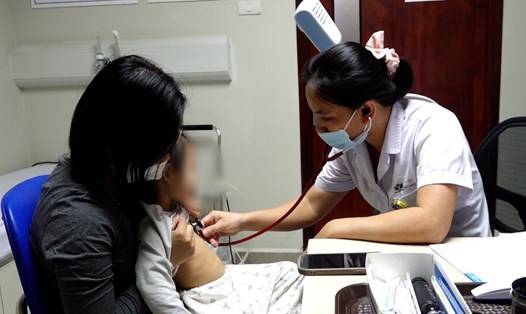Ice cream is a favorite treat for many people, whether it is cold or hot. However, when the temperature drops, many people wonder whether they should eat ice cream in cold weather.
Eating ice cream in cold weather can have health effects, especially for people with respiratory or digestive problems.
To clarify this issue, it is necessary to learn about the effects of eating ice cream in cold conditions on the body. First of all, a study from the American Academy of Pediatrics shows that eating ice cream can irritate the throat and respiratory tract, especially in cold weather. When eating ice cream, cold substances will reduce the temperature of the throat, causing the throat muscles to contract, leading to a burning and uncomfortable feeling. In particular, people with a history of sore throat or asthma can easily be irritated and sick due to this sudden change in temperature.
Another study from the World Health Organization said that when the body is exposed to cold temperatures, the immune system can be weakened, so consuming cold foods like ice cream can increase the risk of respiratory diseases. Specifically, cold temperatures cause blood vessels in the lining of the nose and throat to constrict, reducing the body's ability to protect against pathogens from the environment. Eating cold ice cream can make this condition worse, especially in winter.
However, there are some opposing views that eating ice cream in the cold season is not too dangerous if done properly.
This view points out that eating ice cream can add calories and nutrients, especially when ice cream is made from ingredients rich in protein and calcium, which is beneficial to health. However, if you eat too much or eat it quickly, ice cream can easily cause heat shock to the body, affecting the digestive system.
Eating ice cream in cold weather is not a taboo, but it should be noted that ice cream consumption needs to be considered. People with poor health or susceptible to respiratory diseases should limit ice cream consumption in cold weather to avoid negative effects on health.









